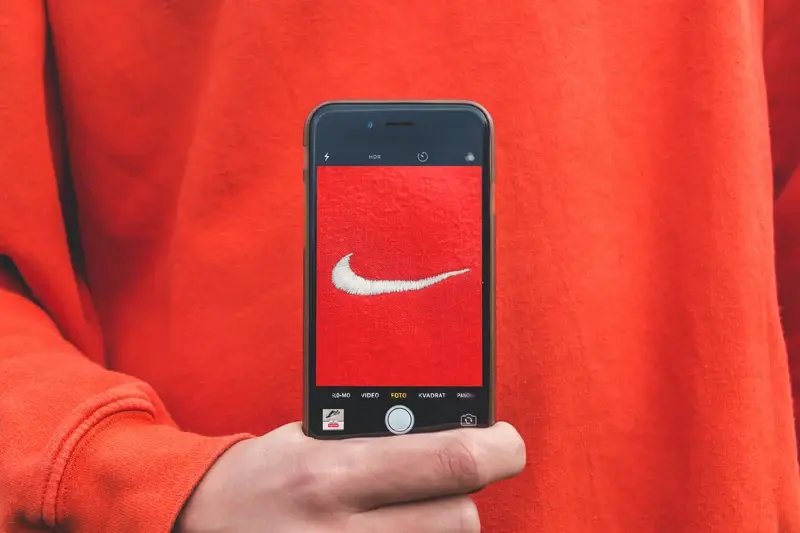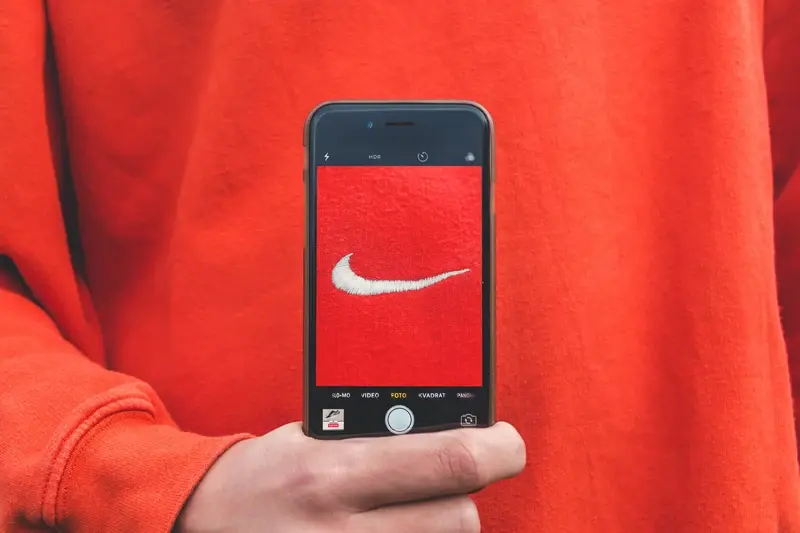Will A Mobile App Damage Our Brand?
Every day, thousands of businesses launch mobile apps hoping to connect better with their customers. But here's something that might surprise you—nearly 40% of these apps actually end up hurting the very brands they were meant to help. That's a staggering number when you think about it, and it's exactly why you're probably asking yourself this question right now.
The thing is, mobile apps aren't just another marketing tool you can throw together and hope for the best. They become part of your brand identity the moment they go live. A poorly designed app or one that crashes constantly doesn't just disappoint users—it makes them question everything about your business. Your reliability, your attention to detail, even your competence.
A bad app experience is like having a rude shop assistant; it doesn't matter how good your product is, people will remember how you made them feel
But here's the good news. Mobile app brand dilution isn't inevitable. With the right approach to app brand risk management and proper brand safety measures, your mobile app can actually strengthen your reputation rather than damage it. Throughout this guide, we'll explore exactly how to protect your brand with apps while avoiding the common pitfalls that catch so many businesses off guard. Because when done right, apps don't just avoid harming your brand—they can become your most powerful brand asset.
Understanding Brand Risk in Mobile Apps
I've seen plenty of brands get excited about launching their first mobile app—and then watch their excitement turn to panic when things go wrong. The truth is, mobile apps can absolutely damage your brand if you're not careful. But here's the thing: most brand damage from apps isn't intentional or malicious; it happens because businesses don't fully understand what they're getting into.
Your brand risk with mobile apps falls into several key areas that you need to know about:
- Poor user experience that frustrates customers
- Technical problems like crashes or slow loading
- Data security breaches or privacy concerns
- Negative reviews in app stores
- Apps that don't match your brand values or quality
Why Apps Are Different from Websites
Apps live on people's phones—that's personal space. When your app doesn't work properly, it feels more intrusive than a website problem. People will delete a frustrating app immediately, and worse, they might leave a one-star review that thousands of potential customers will see. Unlike your website where you have more control, app stores give users a public platform to share their opinions about your brand.
The good news? Understanding these risks means you can plan for them and build an app that actually strengthens your brand instead of damaging it.
Common Ways Apps Can Hurt Your Brand
After working with countless brands over the years, I've seen mobile app brand dilution happen in ways that might surprise you. The most obvious culprit? Poor performance. When your app crashes, loads slowly, or simply doesn't work as promised, users don't just delete it—they associate that frustration with your entire brand. I've watched companies spend millions on marketing only to see their reputation take a hit because their app couldn't handle basic functions.
Inconsistent branding is another silent killer. Your app might look nothing like your website, use different colours, or speak in a completely different tone. Users notice these things more than you'd think, and it makes your brand feel scattered and unprofessional. Then there's the navigation nightmare—when people can't figure out how to use your app, they don't blame the app, they blame you.
The Customer Service Connection
Here's something many brands overlook: your app becomes part of your customer service experience. If users can't get help when something goes wrong, or if your app makes simple tasks unnecessarily complicated, you're creating app brand risk that extends far beyond the digital space. These frustrated users often become vocal critics on social media and review platforms.
Always test your app with real users before launch—what seems obvious to you might be confusing to your customers, and catching these issues early can protect brand with apps strategies.
Quality Control and User Experience Impact
Poor quality control can absolutely destroy your brand reputation faster than you'd think. I've seen companies spend months building what they thought was a brilliant app, only to launch it with bugs that made users want to delete it within minutes. Crashes, slow loading times, broken features—these aren't just minor inconveniences; they're direct reflections of your brand's standards.
When someone downloads your app, they're essentially inviting your brand into their personal device. If that experience is frustrating, confusing, or unreliable, they'll associate those negative feelings with your entire company. Think about it: would you trust a bank whose app crashes when you're trying to check your balance? Or a restaurant whose ordering app never loads properly?
Testing Prevents Brand Damage
The good news is that most quality issues can be caught before your app reaches users. Proper testing across different devices, operating systems, and user scenarios will help you spot problems early. I always tell clients that launching a half-baked app is worse than not launching at all—you only get one chance to make a first impression.
User experience problems stick around long after you've fixed them. Bad reviews remain visible, word-of-mouth spreads quickly, and rebuilding trust takes significantly more effort than getting it right the first time.
Data Privacy and Security Concerns
Data breaches make headlines for good reason—they can destroy a brand's reputation overnight. When you launch a mobile app, you're collecting user information, and that comes with massive responsibility. Personal details, location data, payment information—it all needs protecting. One security slip-up and your customers lose trust; winning that back takes years, if you ever manage it at all.
The Real Cost of Poor Security
I've watched brands spend millions rebuilding their reputation after a data incident. The financial hit is bad enough, but the damage to customer relationships runs much deeper. People share incredibly personal information with apps—their daily routines, shopping habits, even health data. When that information gets compromised, users feel betrayed on a personal level.
A single data breach can undo decades of brand building in just 24 hours
Building Trust Through Transparency
The good news? You can turn data protection into a competitive advantage. Be upfront about what information you collect and why you need it—users appreciate honesty. Implement proper encryption, regular security audits, and clear privacy policies that people can actually understand. When users feel safe, they engage more deeply with your brand. Make security a priority from day one, not an afterthought when something goes wrong.
App Store Reputation Management
Your app's reputation in the app stores can make or break your brand faster than you might think. I've watched brilliant companies stumble because they ignored their app store presence—and trust me, it's not pretty when things go wrong.
Bad reviews spread like wildfire and they stick around forever. One frustrated customer can write a scathing review that thousands of potential users will see before downloading your app. What's worse is that these reviews often focus on technical problems that could have been fixed, but the damage to your brand reputation lingers long after the bug is patched.
Managing Your App Store Presence
You need a proper system for monitoring and responding to reviews across all platforms. Here's what works:
- Set up alerts for new reviews so you can respond quickly
- Reply to negative reviews with helpful solutions, not excuses
- Thank users for positive feedback—it shows you're listening
- Fix reported bugs fast and mention the fix in your response
- Keep your app description accurate so users know what to expect
The Long Game
Building a strong app store reputation takes time but it's worth the effort. Regular updates, genuine customer service, and listening to user feedback will slowly build trust with your audience. Remember, your app store listing is often the first impression people get of your brand—make it count.
Building Apps That Strengthen Your Brand
After spending years watching brands stumble with their mobile apps, I've learned that the best defence against mobile app brand dilution is going on the offensive. Instead of just avoiding mistakes, you want to actively build something that makes your brand stronger. It's like the difference between not losing and actually winning—completely different outcomes.
The secret lies in treating your app as an extension of your brand values, not just a digital afterthought. Every interaction someone has with your app should reinforce what your company stands for. If you're known for excellent customer service, your app should reflect that through intuitive design and helpful features. If sustainability is your thing, maybe your app helps users track their environmental impact.
Start by listing your top three brand values, then brainstorm how each one could translate into specific app features or design choices.
Key Brand-Strengthening Elements
- Consistent visual identity that matches your other marketing materials
- Tone of voice in app copy that sounds like your brand
- Features that solve real problems for your customers
- Smooth onboarding that doesn't frustrate new users
- Regular updates that show you care about the experience
The brands that nail this approach don't just avoid app brand risk—they create powerful tools that customers genuinely love using. When done right, your app becomes something people recommend to friends, turning it into a brand ambassador rather than a liability.
Conclusion
So there you have it—mobile apps don't have to be brand killers if you approach them sensibly. I've seen plenty of companies worry themselves sick about launching an app, only to discover that with proper planning and execution, their app becomes one of their strongest brand assets. The key lies in understanding that every app decision you make reflects on your business.
The brands that succeed with mobile apps are those that treat app development as seriously as any other part of their business. They invest in quality user experience, they protect customer data like their reputation depends on it (because it does), and they maintain the same standards they'd expect from their website or physical stores. It's not rocket science, but it does require commitment.
Your app will either strengthen your brand or weaken it—there's rarely a middle ground. Customers form opinions quickly, and a poorly designed app or a security breach can undo years of brand building. But get it right, and you'll have a powerful tool that keeps customers engaged and coming back for more. The choice is yours, and now you know what it takes to make the right one.
Share this
Subscribe To Our Learning Centre
You May Also Like
These Related Guides

How To Ensure Our App Enhances Rather Than Hurts Our Brand?

What Are The Risks Of Building A Branded Mobile App?



